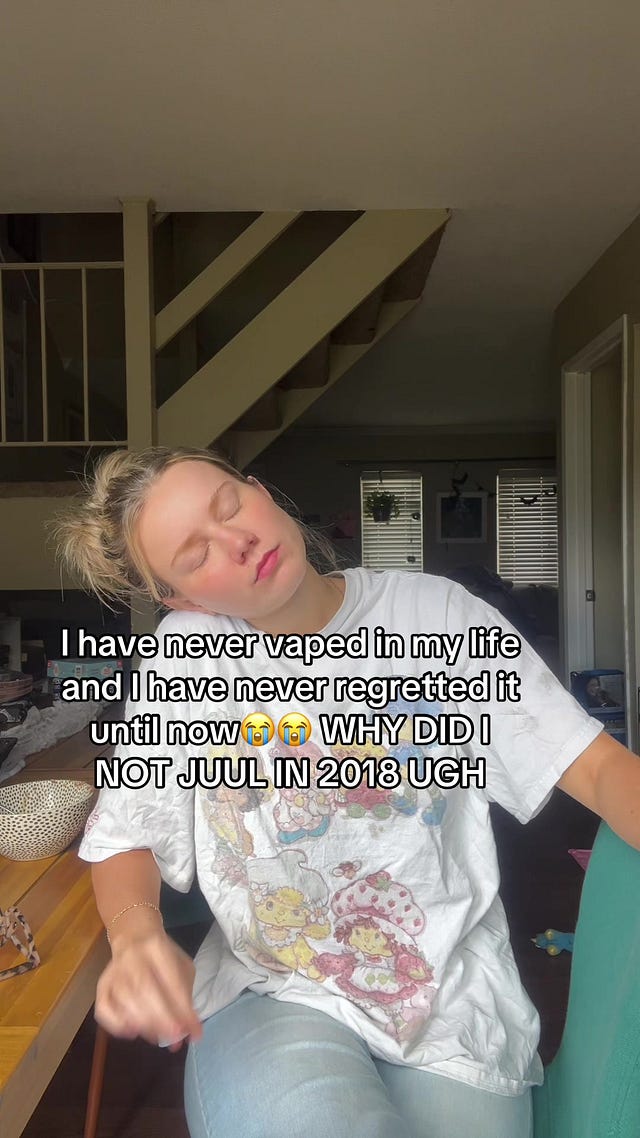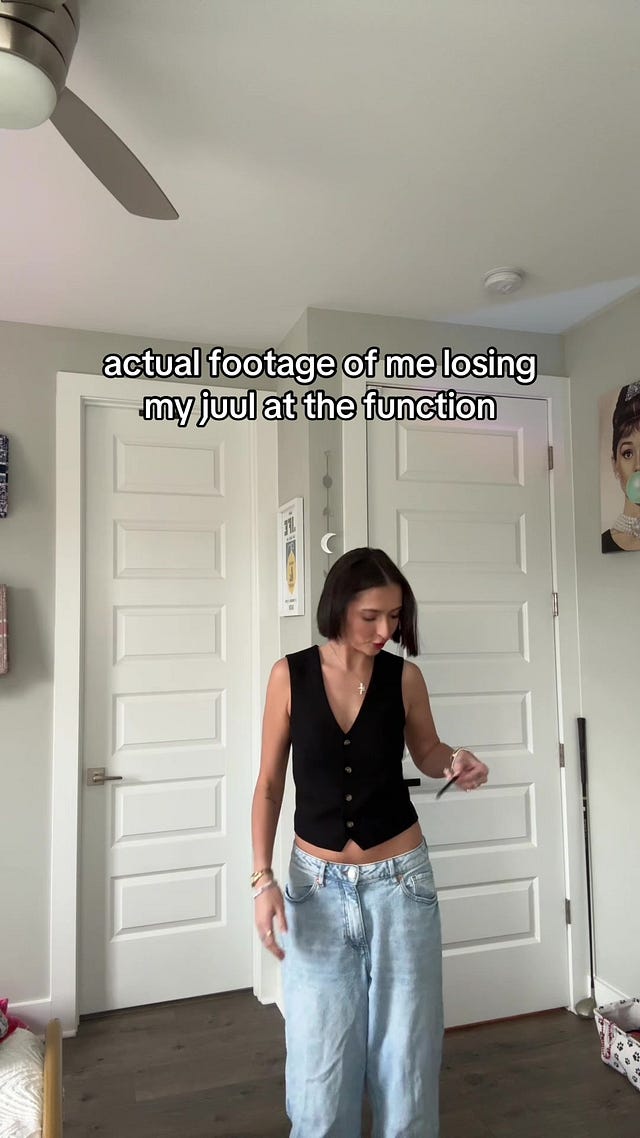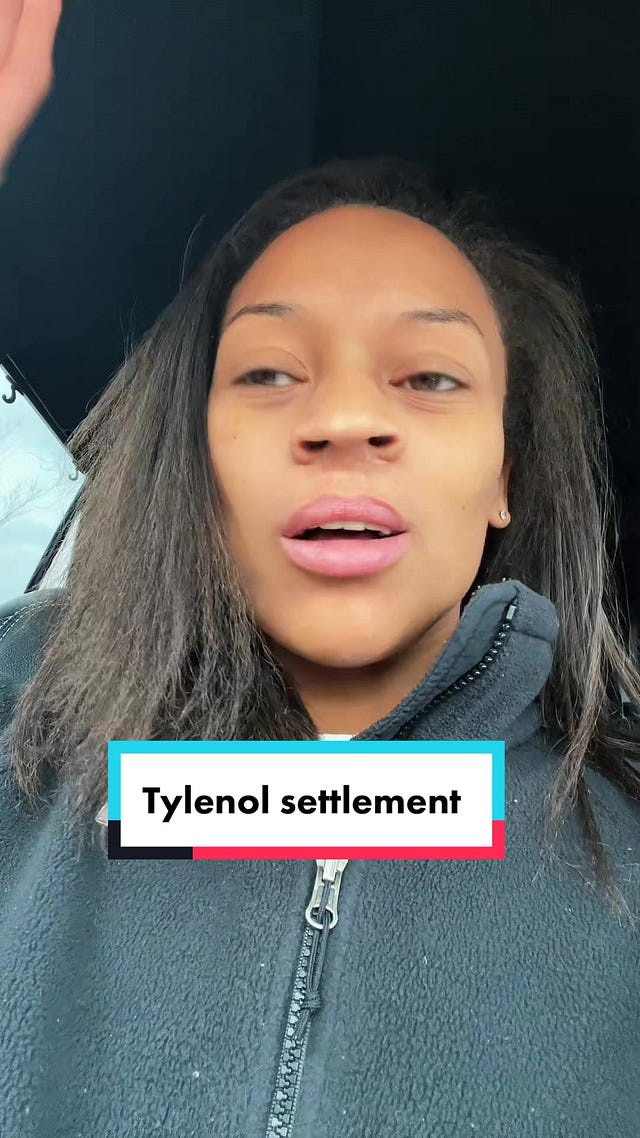did juul just yassify class action lawsuits?
social media is redefining the fight for financial settlements against big brother
When I think of class action lawsuits, I think of them being fueled by disgruntled senior citizens and delivered in a monotone yet authoritative man’s voiceover, superimposed text, and a flashing phone number to call if you think you’ve fallen victim to baby powder causing cancer. Instead of being at your fingertips at any time, these invitations to hop into the settlement pool existed through infomercial-styled PSAs during late-night and daytime TV slots. Today, we’re seeing an entirely new form of it, embedded with conspiratorial discourse, high engagement rates, and intentional uses of paid social placements to promote.
Historically, law firms are overlords who hunt down class action lawsuits to profit from large settlements, and they’re strategic about reaching the masses to rake in disgruntled consumers wronged by big corporations. Now, they’re doing that but with modern social tech in the form of targeted ads that feel like a sterile extension of those late night TV PSAs. It’s clinical, cold, and out of touch with how real people talk to each other online. However, even with that, they use the native platform tools to gather prospective data and scoop up potential plaintiffs.
On our viral social stage, enters Juul, the ultimate e-cig brand that had fruity flavors that rival bubba teas and that took high school bathrooms by storm across the USA. The brand that got Midwestern parents and politicians freaking out—validly so due to its misleading and pandering marketing, which was akin to candy, and serious health repercussions like the terrifying phenomenon of popcorn lung—is now finally dishing out the coin to its “victims.”
 Tiktok failed to load.
Tiktok failed to load.Enable 3rd party cookies or use another browser
But… We live in a meme world, so it seems like the conclusion of the Juul settlement is becoming yassified. Typically a legal and dry genre imbued with the looming fear of serious consequences, we’re now witnessing a dystopian irony that is LITERALLY LIT. On social media, people are sharing random settlement payouts, and feeds are lighting up more than a Christmas tree with TikToks from those celebrating their unexpected coin, playfully admitting they don’t even remember signing up for it. The FOMO is real, users are also lamenting that they didn’t hop on that train back then, while others are still yearning for the good ol’ mango Juul pod days.
 Tiktok failed to load.
Tiktok failed to load.Enable 3rd party cookies or use another browser
 Tiktok failed to load.
Tiktok failed to load.Enable 3rd party cookies or use another browser
 Tiktok failed to load.
Tiktok failed to load.Enable 3rd party cookies or use another browser
Despite the no longer present fruity pods and FDA crackdowns, Juul and vapes are still an it-girl necessary accessory. It’s what you hold when you blast charli xcx saying “Drop down, yeah, Put the camera flash on” for your blurred and messily yet intentionally curated IG carousel of a night out with the girls. A Juul or vape is what’s in hand while you're expressing your rebellion, reveling in your youth. And even though the health repercussions are serious, it’s almost like people know they’re gonna die anyways, so cash in, cash out, and keep vaping like the hot internet girl you are.
 Tiktok failed to load.
Tiktok failed to load.Enable 3rd party cookies or use another browser
 Tiktok failed to load.
Tiktok failed to load.Enable 3rd party cookies or use another browser
Another case that depicts this evolution of the class action lawsuit’s accessibility precursors the Juul payouts. It’s the viral discourse of the Tylenol Autism Lawsuit. Spreading the word and awareness of it was a strategic and targeted paid social media placement, I noticed the comms strategy at every touchpoint. I actually worked on the Tylenol brand at the time, and we did not engage with the conversation per client’s direction, even though we brought it to them several times. I can confirm, the brand stated they had plenty of evidence against the claims being made. Which ultimately, a judge ruled in their favor. (I do not lean one way or another, I do not understand the science enough to form a definitive opinion.) But I found the targeted ads so interesting. An evolution of the picture painted of class action lawsuits as discussed before.
There were fake text convos to strike the balance of native formats while sharing a step by step guide of how to engage and simple typographic driven posts. This led to a widespread convo on social from moms who were spreading the word from both sides as well. Telling their stories and experiences, with the tone ranging from dismal to parody. It showed a shift in the way we disseminate this type of information.
 Tiktok failed to load.
Tiktok failed to load.Enable 3rd party cookies or use another browser
All in all… Consumer advocacy doesn’t look like it did for generations past. We aren’t just passively consuming and taking in brands at face value. Digital communication is redefining how we fight for justice against giant corporations that are deeply entrenched in our daily lives, changing them at their cores and helping us hold them accountable, little by little. The cases of Juul and Tylenol are pointing to a larger shift, even outside of class action lawsuits. Every day people can now powerfully harness social media to voice their concerns about companies that impact our health, showing that we’re moving towards a new era of advocacy, intertwining culture, social media, and capitalism in the fight against THE MAN. <3















girl i was PRAYING you’d write about this
i fear you ate yet again ✨💅🏻